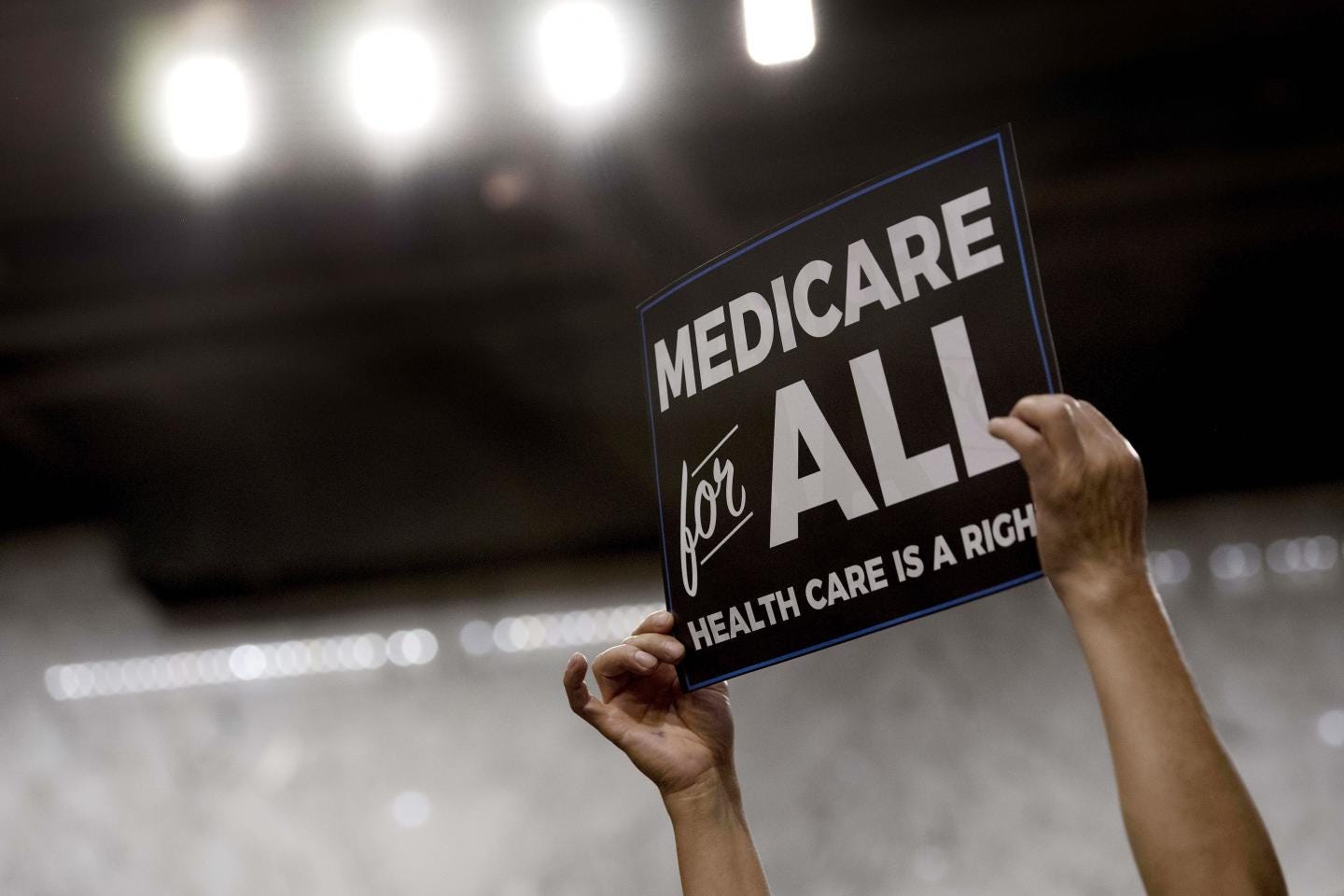One Reason the U.S. Isn't Such a Healthy Nation: Racism
Frequent quality-of-life global rankings and comparisons will leave that important detail out
Publisher’s Riff

by Charles Ellison | @ellisonreport
Bloomberg recently dropped its 2019 Healthiest Country Index, without much fanfare of course. The ranking exposes the overall condition of health and the state of healthcare in 169 “economies.” While healthcare policy is always a major topic, policymakers and the public, generally speaking, then to take the state of their health for granted. There is more conversation, for example, around healthcare costs in the United States - which have ballooned to the size of the federal budget at nearly 18 percent of GDP - than there is conversation about the state of citizen health.
For the U.S., it’s not good: it ranks 35 on that index, and it’s also dropped one point since the 2018 ranking. Here’s a snapshot of the 2019 index …

Indeed, the U.S. is not where it should be for an economy as advanced as it is and for a nation that spends so much on healthcare. Countries that are spending much less than the U.S. on healthcare per person are actually getting a better return on their (non)-investment since the U.S. health indices are ranked by high rates of chronic disease and obesity, see Kaiser …

So, these are countries that are actually spending less on healthcare, but rank substantially better than a country that spends over half the amount on healthcare per resident.
Many, from commentators to candidates, will often muse how countries that rank high on quality-of-life indices do the basics - like healthcare, education and other services - so much better than the U.S. To underscore his Medicare-for-all universal healthcare proposal, Democratic presidential candidate Bernie Sanders often showcases the healthcare and life quality systems in certain European nations - Denmark among his favorites. The debate is in a state of bewilderment and outrage as to why the American healthcare system can’t produce better health outcomes as the comparison to other European and Asian nations continues.
While the global rankings are very useful, the tendency towards comparisons leave one enormous detail out. Such comparisons may be ignoring the role race, and therefore racism, play in aggravating poor health conditions in the United States and widening healthcare disparities. When looking at the Bloomberg index, all of the Top 10 countries, including places like Japan (which is non-European), are among some of the least diverse in the world. Spain, which made the No. 1 spot, is nearly 90 percent Spanish or Spaniard (European) ethnicity, with barely 10 percent of the population considered a foreign minority. Other places like Iceland and Italy and Switzerland and elsewhere on the top of the health index house White populations that are, by proportion, much larger than the White population share in the United States.
When making these comparisons in the debate on healthcare, it would be essential to point out that these countries are not dealing with the same racial challenges that have plagued the United States for several hundred years. Nor are these countries faced with the same racial management challenges that the U.S. must manage being an advanced economy and a highly diverse population at once. Low healthcare outcomes are a result of rampant healthcare disparities, and those disparities result from the larger healthcare system’s continued inability to provide a level of equal service and response to all population groups, regardless of race and background. In addition, it’s not just the healthcare system: disparities caused by inequality - from worsening wage gaps to residential segregation to the hazards environmental threats pose to the health of Black, Brown and Native populations - continue to put a drag on U.S. healthcare outcomes. It’s not, so much, that other countries have better systems, even though we should look to replicate what they have. But one overlooked reason they perform so much better is that they are predominantly White nations that have fewer people of color to respond to or to oppress. They have the advantage of not dealing with the “race question,” a question Americans, to date, have failed to answer.


